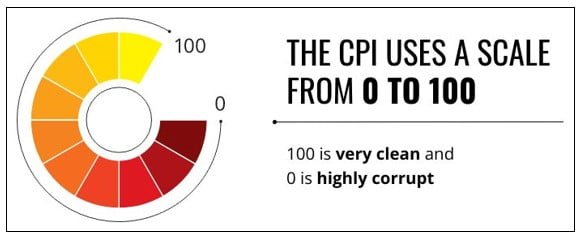
Newsletter #146 / February 2023
Transparency International published the 28th annual edition of theCorruption Perceptions Index (CPI) 2022,which measures the perception of corruption in the public sector.
The CPI is the world's leading corruption ranking. The scores are calculated based on at least three data sources, provided by various prestigious institutions, such as the World Bank and the World Economic Forum, amongst others.
The CPI ranks 180 countries and territories on a scale of 0 to 100, where 0 means highly corrupt and 100 means very clean.

In the 2022 report, Guatemala's obtained a score of 24 point (one less point than in 2021), and it was ranked #150 out of 180 countries.

The data sources specifically cover the following corruption scenarios:
- Bribery.
- Embezzlement of public funds.
- Officials using their public office for personal profit without facing the consequences.
- Capacity of governments to prevent corruption.
- Excessive bureaucracy in the public sector.
- Nepotism in the appointment of public officials.
- Legislation to ensure transparency in declarations of personal finances and possible conflicts of interest in public office.
- Legal protection for whistleblowers in cases of bribery and corruption.
- Capture of the state by private interests.
- Access to information on public matters of citizen interest and government activities.
Derived from this score, these are some of the actions the ICP recommends that Guatemala should implement to fight corruption:
- Encourage an active participation of individuals and groups in civil society.
- Promote ethical values, such as integrity, honesty, and transparency, in the public and private sectors, through the establishment and enforcement of codes of conduct.
- Allow civil society to participate in governmental decisions and the promotion of accountability.
- Establish appropriate public procurement and public financial management systems to increase institutional transparency.
- Establish appropriate public procurement and public financial management systems to increase institutional transparency.
Adopt transparent systems for the selection, development, and retention of public servants, based on merit, equity, and aptitude.

